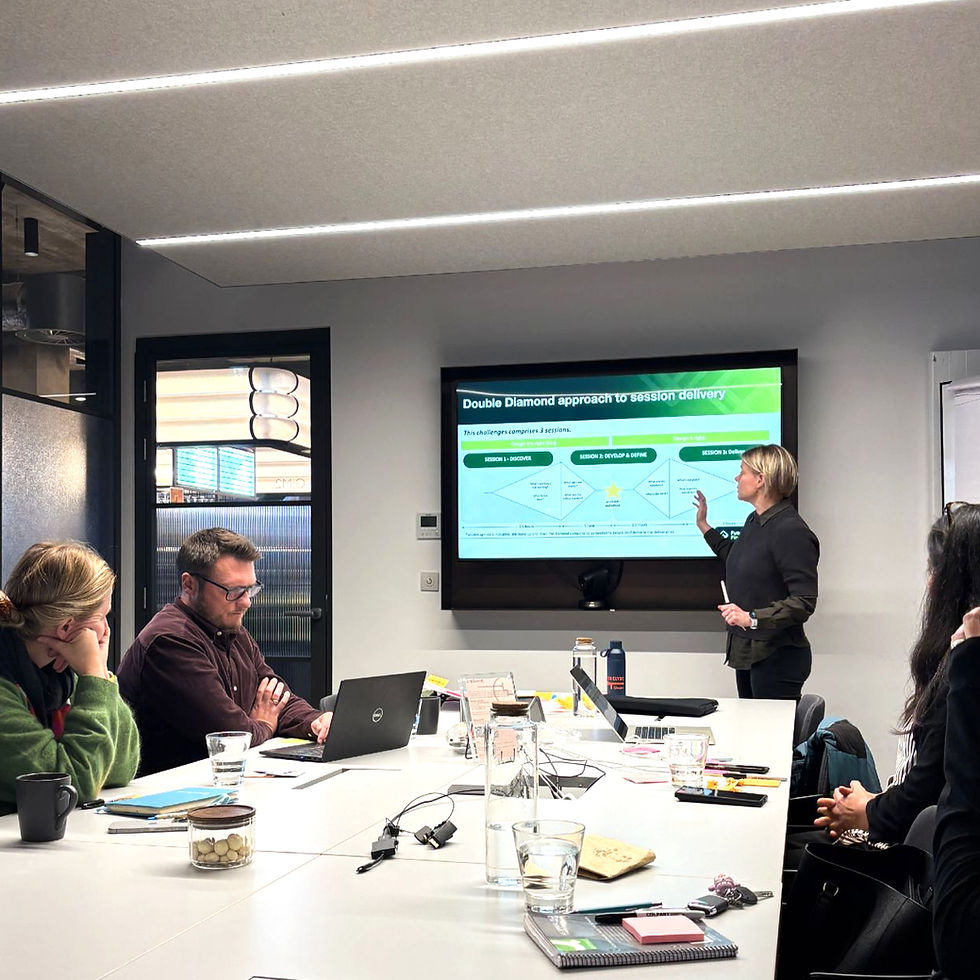Including the Voices of the Underserved
- Apr 15, 2024
- 3 min read
Updated: Feb 20, 2025
Dr Anthonia Onyeahialam, Senior Research Associate for Future Finance, shares plans to include the insights of underserved communities, individuals and companies in shaping training that aims to boost equitable access to financial services.
Current State

Financial services – such as banking and payments, credit, insurance and financial advisory services – are part of everyday life. Yet millions of underserved voices, individuals and SMEs in the UK still lack access to financial services that suit their needs. An estimated 20.2M are without mainstream credit, and a 14% gap in access to cash between female and male owned SMEs and Ethnic Minority businesses also face difficulties accessing finance with African/Caribbean SMEs most disadvantaged. Approximately 1.1M adults are still unbanked, with the proportion of young unbanked persons twice the number of older adults. With increased living costs more people are either spending less or running into debt. For example, 1 in 8 adults in UK downgraded/cancelled insurance policies and 12.8 M adults are struggling under a heavy debt burden. These underserved groups are characterised by gender, ethnicity, age and disability. Income and socio-economic status are also important factors that shape what financial services people do and don’t have access to; as are online access and digital skills, as financial services increasingly become ‘digital first’.”
Amidst these challenges however, there have also been opportunities. Between 2017 and 2022, there has been an over 50% surge in the number of adults with lower socio-economic status and above 65 years using online services, mobile apps, and FinTech services (outside mainstream financial services), though a digital divide still exists for those lacking digital literacy and access to mobile devices.
Listening to the Voices of the Underserved
The Community Research work package is a crucial part of the Future Finance Accelerator. It aims to ensure that the ‘consumer voice’ – especially the voices of those traditionally under-served by financial services – inform the challenges that smaller financial services businesses, FinTechs and other innovators tackle in the Accelerator.
In the first stage of our Community Research, we are delighted to be working in partnership with Urfan Ali, an experienced community consultant and adviser to Babbasa, a social enterprise that supports young people to achieve their aspirations. This involves four community workshops in Bristol in May and June with people and organisations that we know have issues accessing and navigating financial service for the reasons outlined above (such as age, ethnicity, disability). Two of the workshops are with individuals (one with younger adults aged 18-25, one with adults aged 25+); one is with small businesses; and one is with social enterprises and non-profits.
The workshops are designed to bring to life the barriers and issues faced by individuals and organisations in accessing and using financial services. We are interested in the whole customer journey - from finding out about financial services, to applying and taking them out, managing products over time, communicating with providers, resolving issues. The knowledge we gain from the workshops will feed directly into the Future Finance Accelerator, to help ensure that Accelerator participants focus on innovating for real-life problems.
Other topics we hope to explore in the Community Research include how financial services can better meet the needs of disabled people; how innovation could improve people's access to, and experiences of, debt advice; and women's access to finance, both as individuals and entrepreneurs.
The Future Finance Accelerator
Through a package of bespoke support, the Future Finance Accelerator enables small or mid-sized financial service organisation based in the UK to adopt innovative technologies, strategies, and processes. The core aim is to increase efficiency and profitability, and to encourage more sustainable and inclusive ways of working in the sector.
Find out more about Future Finance and register you interest to get involved.







